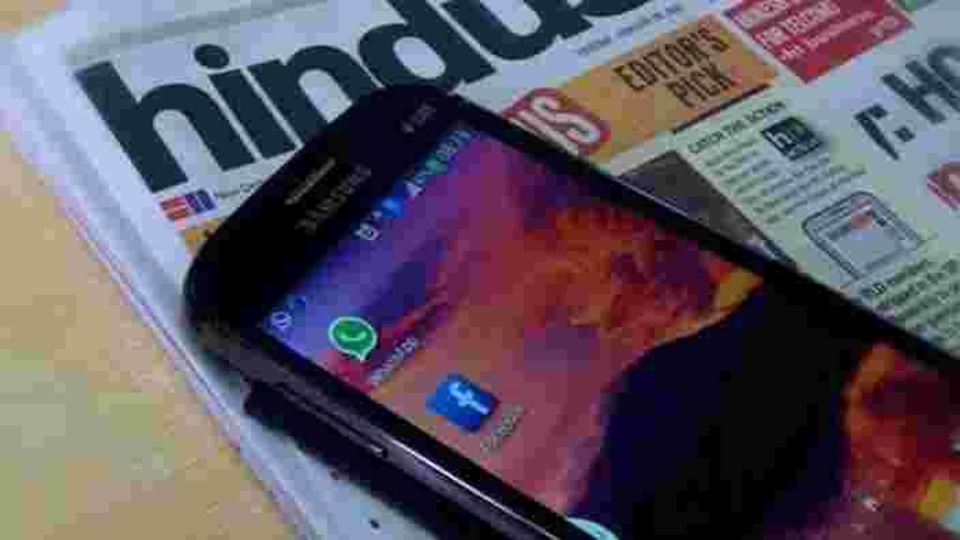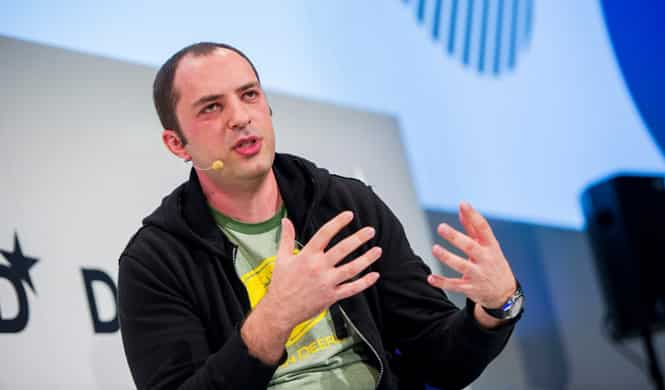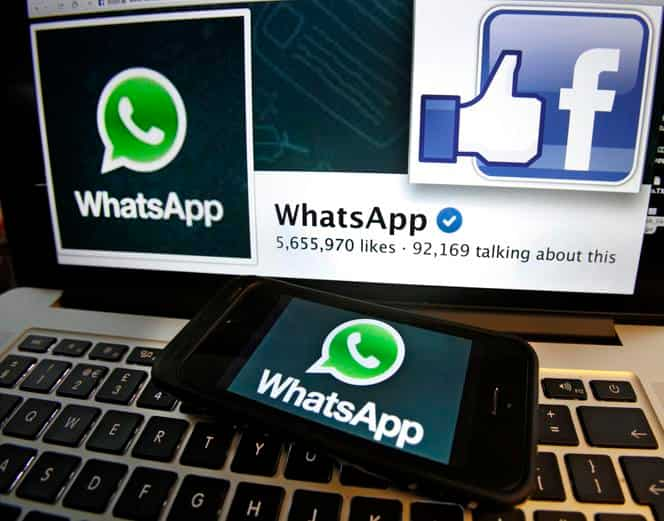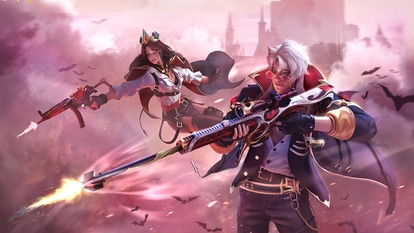10 things to know about WhatsApp and its future with Facebook
Facebook is placing a $19 billion bet on reaching its next billion mobile users with the acquisition of WhatsApp, a popular messaging service that lets people send texts, photos and videos on their smartphones. We take a look at 10 must-knows of the messaging application.


Facebook is placing a $19 billion bet on reaching its next billion mobile users with the acquisition of WhatsApp, a popular messaging service that lets people send texts, photos and videos on their smartphones. We take a look at 10 must-knows of the messaging application:
1) The beginning of Whatsapp
WhatsApp was founded by former Yahoo employees Brian Acton and Jan Koum in 2009 took its name from a play on the phrase 'What's Up,' according to its website. The founders jokingly described themselves at the website as 'two guys who spent combined 20 years doing geeky stuff at Yahoo! Inc.' They also devoted themselves to a credo of 'No Ads. No Games. No Gimmicks.' A note stating just that and signed by Acton remains taped to Koum's desk, according to venture capital firm Sequoia, which invested in the startup early and stands to cash in big time on the Facebook take-over.
2) How it works?
The app can be downloaded on Android, iOS, BlackBerry, Windows and Symbian platforms. WhatsApp is a platform for sending images, video, audio, or text messages for free over the Internet using data connections of smartphones. The firm says the data is not stored on their servers after the messages are delivered. One check-mark indicates a message has been sent and two show the message has been opened. The WhatsApp software is available for free, but after a year, users are asked to pay annual subscriptions of 99 cents each.
Read: Facebook buys WhatsApp: Zuckerberg explains why
Read: Facebook to buy messaging service WhatsApp for $19 billion
3) How many people use it?
WhatsApp has more than 450 million monthly active users and is said to handle 50 billion messages daily. Facebook CEO Mark Zuckerberg says it is on path to reach a billion users. Of the 450 million, 70% users are active on a given day. WhatsApp was the leader among a wave of smartphone-based messaging apps that are now sweeping across North America, Asia and Europe. Although WhatsApp has adhered strictly to its core functionality of mimicking texting, other apps, such as Line in Japan or Tencent Holdings Ltd's WeChat, offer games or even e-commerce on top of their popular messaging features.


4) How the $19bn buyout compares to other such deals
Facebook is paying $42 per user with the deal, dwarfing its own $33 per user cost of acquiring Instagram. By comparison, Japanese e-commerce giant Rakuten just bought messaging service Viber for $3 per user, in a $900 million deal. Facebook pledged a break-up fee of $1 billion in cash and $1 billion in stock if the deal falls through. Facebook was advised by Allen & Co, while WhatsApp has enlisted Morgan Stanley for the deal. Shares in Facebook slid 2.5% to $66.36 after hours, from a close of $68.06 on the Nasdaq.
Read: Dinner deal: How Zuckerberg wooed WhatsApp founder Jan Koum
5) What will become of Whatsapp at Facebook?
Facebook said it is keeping WhatsApp as a separate service, just as it did with Instagram, which it bought for about $715.3 million in two years ago. The deal provides Facebook entree to new users, including teens who eschew the mainstream social networks but prefer WhatsApp and rivals, which have exploded in size as private messaging takes off.
6) What if the deal fails?
Facebook will have to shell out $2 billion (over ₹12,500 crore) if its acquisition of the instant messaging service Whatsapp fails to get necessary approvals. 'In the event of termination of the merger agreement under certain circumstances principally related to a failure to obtain required regulatory approvals, the merger agreement provides for Facebook to pay WhatsApp a fee of $1 billion in cash,' Facebook said.
Read Five things to know about WhatsApp founder Jan Koum
7) Will there be ads on Whatsapp?
WhatsApp CEO Jan Koum said the 19 billion dollars deal doesn't mean there would be ads on the platform. According to Mashable, both Koum and Facebook CEO Mark Zuckerberg have pledged to hold true to the 'No Ad' rule. Koum said for WhatsApp, advertising is not necessarily the right way to go, adding that they have a very solid monetization system in place, hinting to its current strategy of charging users 0.99 dollars subscription fee after their first year for each additional year that users remain on the service.


8) A bit about the WhatsApp team
As of the start of this year, WhatsApp had 50 employees, more than 30 of them engineers. While the company has its headquarters in the California city of Mountain View, where Google has its main campus, most of the engineering work is reportedly done in Russia.
Read: WhatsApp #Facebook? Twitter is laughing at your $19bn deal
9) Does it put pressure on other apps?
The stunning price tag for a company that employs just 50 people is likely to boost valuations of other messaging applications and also stoke worries about a new tech bubble. Many of the messaging apps are still figuring out how to make money from big pools of users. Their main features are free messaging and voice calls between two individuals or in groups. Some have been adding gift buying and mobile games. They are already undercutting the mainstay businesses of mobile phone network companies: text messages and voice calls. Some of the most popular mobile messaging applications such as Line, Viber and WeChat were developed in Asia, where legions of similar apps are competing for dominance.
10) What's in store for WhatsApp?
The messaging volume of WhatsApp is approaching the entire global telecom SMS volume and the company is currently adding over one million new registered users per day.
Catch all the Latest Tech News, Mobile News, Laptop News, Gaming news, Wearables News , How To News, also keep up with us on Whatsapp channel,Twitter, Facebook, Google News, and Instagram. For our latest videos, subscribe to our YouTube channel.




















